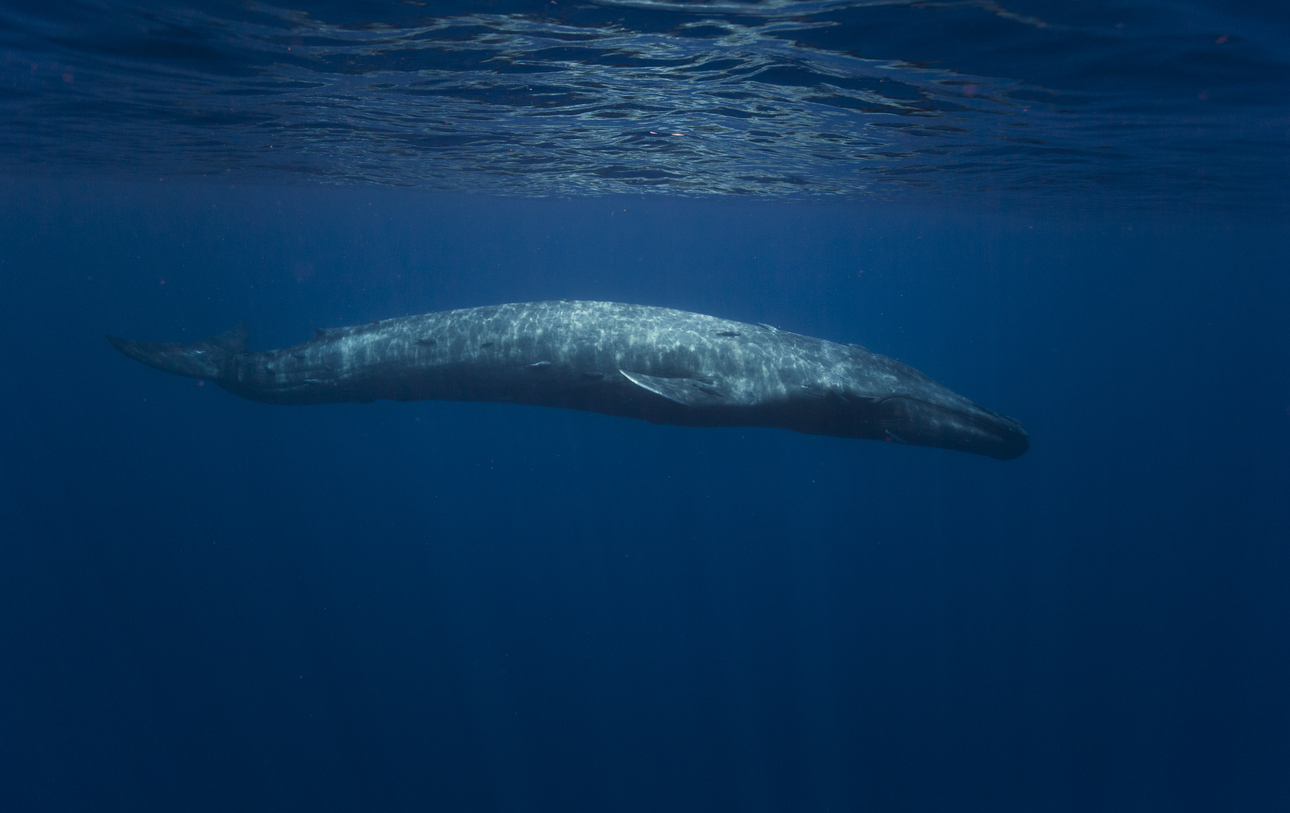Why are whales so big?


A free daily email with the biggest news stories of the day – and the best features from TheWeek.com
You are now subscribed
Your newsletter sign-up was successful
Earlier this month, people around the world gawked at viral photos of a massive sea monster that had washed up on an Indonesian beach. Aside from looking like a grotesque, melting, Dalí-worthy nightmare, part of what was so strange and horrifying about the carcass was the size — the beast from the deep stretched nearly 50 feet in length.
Unfortunately, reality is always a little disappointing: The remains belonged to a baleen whale. But there is certainly something rather mythical and monstrous about cetaceans, and how exactly they became so colossal compared to everything else on Earth. The blue whale, for example, can stretch over 80 feet and weigh 380,000 pounds.
A study published Tuesday might have the answers. Whales, as it turns out, only became enormous in the past 4.5 million years or so: "All of a sudden — 'boom' — we see them get very big, like blue whales," the author of the paper, Smithsonian Institution marine mammal fossil curator Nick Pyenson, told The New York Times. "It's like going from whales the size of minivans to longer than two school buses."
The Week
Escape your echo chamber. Get the facts behind the news, plus analysis from multiple perspectives.

Sign up for The Week's Free Newsletters
From our morning news briefing to a weekly Good News Newsletter, get the best of The Week delivered directly to your inbox.
From our morning news briefing to a weekly Good News Newsletter, get the best of The Week delivered directly to your inbox.
Around the time whales bloated up to the size of, uh, whales, large ice sheets were beginning to cover swaths of the Northern Hemisphere:
Runoff from the glaciers would have washed nutrients like iron into coastal waters and intense seasonal upwelling cycles would have caused cold water from deep below to rise, bringing organic material toward the surface. Together these ecological effects brought large amounts of nutrients into the water at specific times and places, which had a cascading effect on the ocean's food web. [The New York Times]
In other words, whales were able to gorge themselves on zooplankton and krill to their car-sized-heart's content. In order to migrate and follow the food sources with the seasons, too, larger aquatic mammals were also more likely to survive the transoceanic journeys.
"A blue whale is able to move so much further using so much less energy than a small-bodied whale," explained evolutionary biologist Dr. Graham Slater said. "It became really advantageous if you're going to move long distances if you're big."
A free daily email with the biggest news stories of the day – and the best features from TheWeek.com
Jeva Lange was the executive editor at TheWeek.com. She formerly served as The Week's deputy editor and culture critic. She is also a contributor to Screen Slate, and her writing has appeared in The New York Daily News, The Awl, Vice, and Gothamist, among other publications. Jeva lives in New York City. Follow her on Twitter.
-
 Colbert, CBS spar over FCC and Talarico interview
Colbert, CBS spar over FCC and Talarico interviewSpeed Read The late night host said CBS pulled his interview with Democratic Texas state representative James Talarico over new FCC rules about political interviews
-
 The Week contest: AI bellyaching
The Week contest: AI bellyachingPuzzles and Quizzes
-
 Political cartoons for February 18
Political cartoons for February 18Cartoons Wednesday’s political cartoons include the DOW, human replacement, and more
-
 Nobody seems surprised Wagner's Prigozhin died under suspicious circumstances
Nobody seems surprised Wagner's Prigozhin died under suspicious circumstancesSpeed Read
-
 Western mountain climbers allegedly left Pakistani porter to die on K2
Western mountain climbers allegedly left Pakistani porter to die on K2Speed Read
-
 'Circular saw blades' divide controversial Rio Grande buoys installed by Texas governor
'Circular saw blades' divide controversial Rio Grande buoys installed by Texas governorSpeed Read
-
 Los Angeles city workers stage 1-day walkout over labor conditions
Los Angeles city workers stage 1-day walkout over labor conditionsSpeed Read
-
 Mega Millions jackpot climbs to an estimated $1.55 billion
Mega Millions jackpot climbs to an estimated $1.55 billionSpeed Read
-
 Bangladesh dealing with worst dengue fever outbreak on record
Bangladesh dealing with worst dengue fever outbreak on recordSpeed Read
-
 Glacial outburst flooding in Juneau destroys homes
Glacial outburst flooding in Juneau destroys homesSpeed Read
-
 Scotland seeking 'monster hunters' to search for fabled Loch Ness creature
Scotland seeking 'monster hunters' to search for fabled Loch Ness creatureSpeed Read
